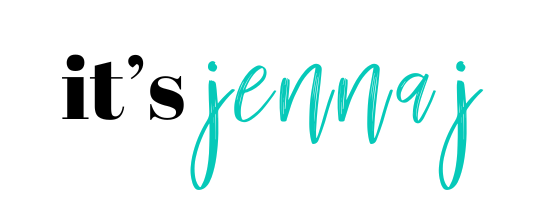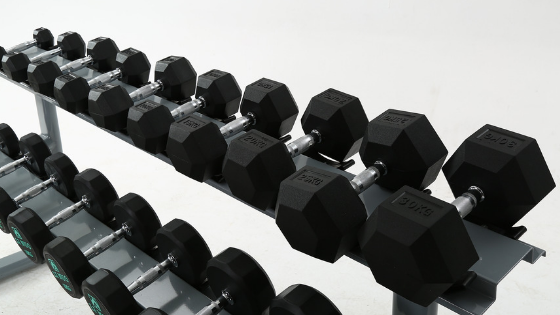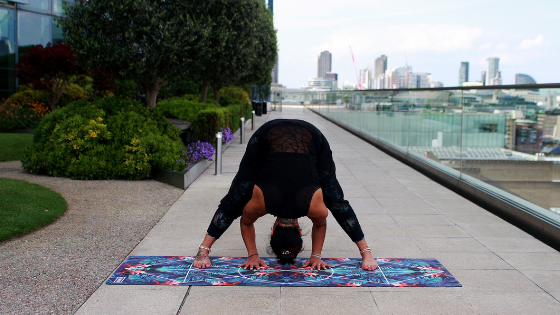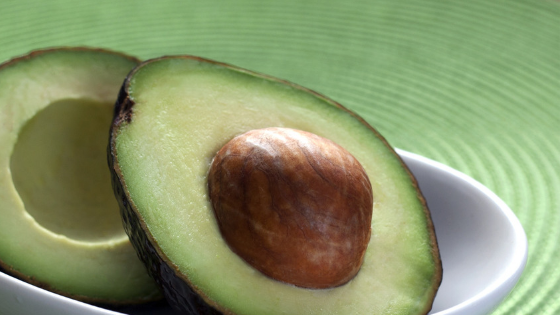10 Common Food Behaviors That Aren’t Necessarily Normal
The last week in February was NEDA‘s Eating Disorders Awareness Week. I stayed pretty quiet, with the exception of a few social media posts, but took some time to reflect on my own experience as someone who once spent a lot of time on the disordered eating spectrum. I might be a little bit late to the party, but I have some thoughts that I need to get off my chest.
A lot of the things we do as a culture when it comes to food might be common, but that doesn’t make them normal.
Diet culture is our culture. It’s the water that we’re swimming in. Disordered behaviors around food and exercise are common. They are praised. We happily partake in them as a group. For those of us who work in the wellness industry, they’re even more prevalent. Some of us maybe even unknowingly prescribe them to our clients. I know I can raise my hand for that one. Guilty as charged.
But now that I know better, I want to do better. I want us all to do better.
Before I go into depth on this topic, I want to fully own the fact that some of the things I’m about to say may rub you the wrong way. They might make you feel defensive. You may want to throw your phone or laptop at me and tell me that I’m full of crap and that you’re just looking out for your health or “taking care of yourself”. I also want to own the fact that I still genuinely value my own health and self care, and have, at some point, done every single thing on this list.
The whole point? That we start to look at our habits and behaviors with a critical eye. To get curious about the “why” and the mindset behind the choices that we make. Much like exercise, anything having to do with food can come from a healthy or disordered place, depending on the mindset from which we approach it.
Eating kale can either be self-care or self-destruction.
So can things like cauliflower rice, going to a HIIT class, doing hot yoga, or drinking a green smoothie. So please know that I’m not here to point fingers or tell anyone that they have an eating disorder. I don’t know you and I’m actually not qualified to do that. I am here to provide some insight, as someone who went through many phases of being “recovered enough” before finally finding some real peace with food and her body.
Here are 10 common behaviors that are often normalized and praised in our society but have the potential to spiral to a disordered place.
1. Counting things: calories. macros. Points.
When you obsess over how many calories (or macronutrients or points) are in foods, you reduce your nutrition needs to a number. It becomes easier to lose sight of whether or not you’re actually hungry or full or what you might be craving. The human body is a complex living organism that has different needs every single day. Focusing too hard on the numbers takes away your ability to sense what you actually need.
2. Keeping detailed food journals that aren’t medically necessary.
There are a few instances in life where a doctor or dietitian might need the information provided by a food journal. Some people might even be able to do this for a short period of time from a place of neutral curiosity. However, for most of us, attempting to micromanage our food indefinitely can be a slippery slope. It also takes up a lot of valuable time and mental energy.
3. Turning food and exercise into a math equation.
You don’t need to earn your food. You don’t have to exercise so you can eat more. You deserve to eat if you didn’t work out yesterday. There are many benefits to different types of movement and food that go beyond calories in/out. When you focus too heavily on that equation, you miss out on a lot of things that can be amazing for you. Like guacamole and naps and mobility work.
4. Eliminating foods (or entire food groups) that you aren’t allergic to.
Unpopular opinion. I know there’s a lot of information floating around the internet about food sensitivities and “inflammatory foods” and “clean eating”. It’s one thing to know your body and what foods make you feel good. It’s quite another to arbitrarily eliminate things because some internet “wellness guru” told you to. Sometimes when you’ve been all in with dieting for a long time, you need to take a step back and repair your relationship with food before you can focus on the nutrition piece.
5. Talking about food in terms of morality.
Food is just food. You aren’t a “bad” person if you ate pizza for dinner. You aren’t “good” because you said no to birthday cake. Different foods serve different purposes at different times. Food is more than “medicine” and “fuel”. It’s also pleasure. Tradition. And necessary for life.
6. Trying to “trick” yourself into eating less by doing things that suppress your appetite.
I’m not even going to give examples here, because I don’t want to give ideas. If you’re anything like me, you probably know every trick in the book. Your body is smart. Eating mindfully is one thing. But if you need to try trick yourself into eating less that’s a red flag in my book. It’s also probably a good sign that you’re hungry.
7. Refusing to be flexible with food when you’re out of your routine.
We all have food preferences. Maybe you prefer to eat the same thing for breakfast every morning or like a certain brand of coffee creamer. Those things you like might even be considered “healthy” by some. Cool. But if straying from the routine over a weekend getaway causes you major anxiety, it could be a sign that your interest in healthy eating is moving in an unhealthy direction.
8. Not eating so you can “cheat” later.
I hear this one so often. Not eating all day so that you can eat later at a social event is the opposite of healthy. In fact, I’m willing to bet that if you do this, you’re more likely to binge later. Same goes for eating before the event so you’re not hungry. Special occasions are called that because they don’t happen all the time. If you can’t let yourself enjoy them, it may be cause for concern.
9. Dieting of any kind.
So let’s talk about diets for a minute. Because they are sneaky now. Most of them don’t even like to call themselves diets because dieting isn’t cool anymore. My friend Krista Murias said this so well that I feel the need to quote her: If your “lifestyle change” makes you feel like you need “cheat days” that’s a good sign you’re on a diet. I’d also like to add that if there is anything about the program that focuses on weight loss as an outcome it’s probably also a diet in disguise.
10. Intermittent fasting.
This one is trendy right now. I know there is “science” supporting the benefits. I also know that most of those studies have been done on men. And that most of us, myself included, don’t get most of our health information from scholarly medical journals, but rather Google and Instagram. Or maybe some snippets we hear on the news or see in a magazine. When I tried intermittent fasting it was glorified anorexia under the guise of health. I’m not saying this is the case for everyone, but it’s definitely worth thinking about.
I feel that it’s important to stress that if you’re doing any of these things it doesn’t automatically mean that you’re doing them in a disordered way.
It doesn’t make you “bad” or “wrong”. You could very well be a vegan for ethical reasons or not eat a certain food because of your religion or because of something that’s genuinely therapeutic for a medical condition. What I do hope, is that this post causes some contemplation for you. That it helps you to take a good hard look at what you’re doing when it comes to food and decide if you need to do a little more mindset work.
I also hope that it helps you look at the things you see happening around you and say “Damn. That’s F’d Up.”
The truth of the matter is is, disordered eating exists on a spectrum. Which means that those of us who have a history of an actual eating disorder may have a lot more work to do when it comes to healing our relationship with food. It also means that those who haven’t ever been clinically diagnosed with an eating disorder may have some preventative work to do. You don’t have to fit the stereotype (young, thin, white, female) to deserve help.
Consider me the messenger, not the healer. While I have a lot of experience with this stuff, healing your relationship with food usually involves working with a therapist, dietitian, or both. Preferably ones that operate from a weight-inclusive, Health At Every Size framework. If you’ve noticed some potentially problematic behaviors in yourself, NEDA has some great free resources, including a screening tool. You can also contact me if you’d like some ideas for where to find a helping professional to take those next steps.








2 Comments
Comments are closed.